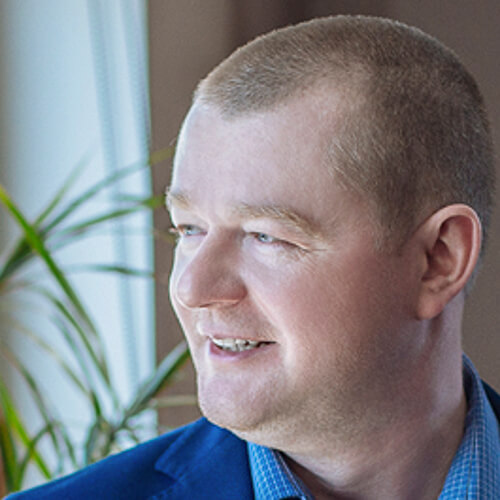
Small satellites are shockingly big business. Going all the way down to microsatellites (weighing 10-100 kg) and nanosatellites (1-10 kg), they're cheap and easy to get to orbit. And instead of taking ten to 15 years to develop launch like big satellites, it can be as little as eight months from detecting a need to getting a "smallsat" orbiting.
Figure 1:  Shiny: Entrepreneur Max Polyakov isn't your typical satellite operator, which might explain the name of his company.
Shiny: Entrepreneur Max Polyakov isn't your typical satellite operator, which might explain the name of his company.
(Source: Max Polyakov)
Already in 2019, 45% of global launches included smallsats, with 389 of them in orbit. Venture capital is flowing in. And companies all the way from Amazon, SpaceX, OneWeb and Raytheon down to venture-backed Planet are scrambling to get a foothold.
Tin Lizzie
So in the most recent development, megarich entrepreneur Max Polyakov, whose company Noosphere Ventures has a majority stake in Texas rocket maker Firefly Aerospace, has just acquired South Africa's satellite builder Dragonfly Aerospace.
Firefly is currently applying the final polish to its Alpha rocket, which Polyakov says may get flying as early as June. Meanwhile it's seeking up to $350 million in investment to develop its higher-capacity Beta rocket. And with Dragonfly duly caught, Polyakov's empire will be in a position to offer the whole gamut from satellite development to launch.
A one-stop satellite-and-rocket shop.
When it was founded in 2014, Texas-based Firefly Space Systems set out to make the Model T of rockets: cheap, mass-produced and affordable. Its CEO and co-founder Thomas Markusic had to settle a lawsuit with his ex-employers, Virgin Galactic, who argued he was using Virgin's trade secrets.
Then Brexit happened, a major (but unnamed) European investor pulled out, and FireFly appeared on the rocks instead of the rockets, furloughing all its staff.
Polyakov and his mile high clubs
Enter Polyakov, who bought Firefly’s debt and then Firefly itself. In its new guise as Firefly Aerospace, it was one of nine startups Nasa picked to work on tech to place payloads on the moon. Polyakov, a Ukrainian-born entrepreneur with deep pockets, who is attempting to piece together a space transport empire, is a colorful figure.
Before getting into space tech, he invested in a series of dating websites, with names like "WantMatures" and “AffairDating." Many featured stolen pictures of models, to entice people into subscribing, and then made it difficult to cancel their memberships, said an investigation by Snopes.
Markusic has suggested some of his company's legal opponents may be using his investor's other activities to try to embarrass Firefly as it goes after US government contracts. Polyakov has brought his A game to trash talking his rivals, saying competitors like Elon Musk and SpaceX "hate us." "Yes, I'm sure Firefly of all companies really keeps SpaceX management up at night," replied Henry Heim on Twitter.
Dragonfly meet Firefly
But with Dragonfly, Firefly may start looking like a slightly more heavyweight proposition.
It's been gearing up to produce up to 48 satellites a year, doing 16 in parallel and focusing on satellites weighing in at 50 to 600 kg. Located in Stellenbosch's Techno Park, they're the successor to a series of South African microsatellite makers that go back to the team which made the SUNSAT, launched in 1999.
Want to know more about satellite? Check out our dedicated satellite content channel here on
Light Reading.
It's what's left of the Space Advisory Company, which was half of South Africa's space industry (along with Denel Spaceteq) when it got into trouble in 2019. In came new investors, though, and it survived and rebranded as Southern Space, and then Dragonfly. Polyakov has other bits to its Noosphere-owned empire, too.
One is EOS Data Analytics (EOSDA), a satellite data and analytics company with its own radar and optical satellite constellations. Another, SETS, makes space electric thruster systems.
Dragonfly, which actually has made satellites for two decades, starts to give Polyakov's empire a bit more bottom.
But whether Polyakov eventually succeeds in his ambition to keep Elon Musk up at night ultimately depends on the luck his Alpha and Beta rockets will have, and how well the bits of his empire play nicely as a whole.
Related posts:
— Pádraig Belton, contributing editor special to Light Reading
Read more about:
EuropeAbout the Author(s)
You May Also Like




_International_Software_Products.jpeg?width=300&auto=webp&quality=80&disable=upscale)







